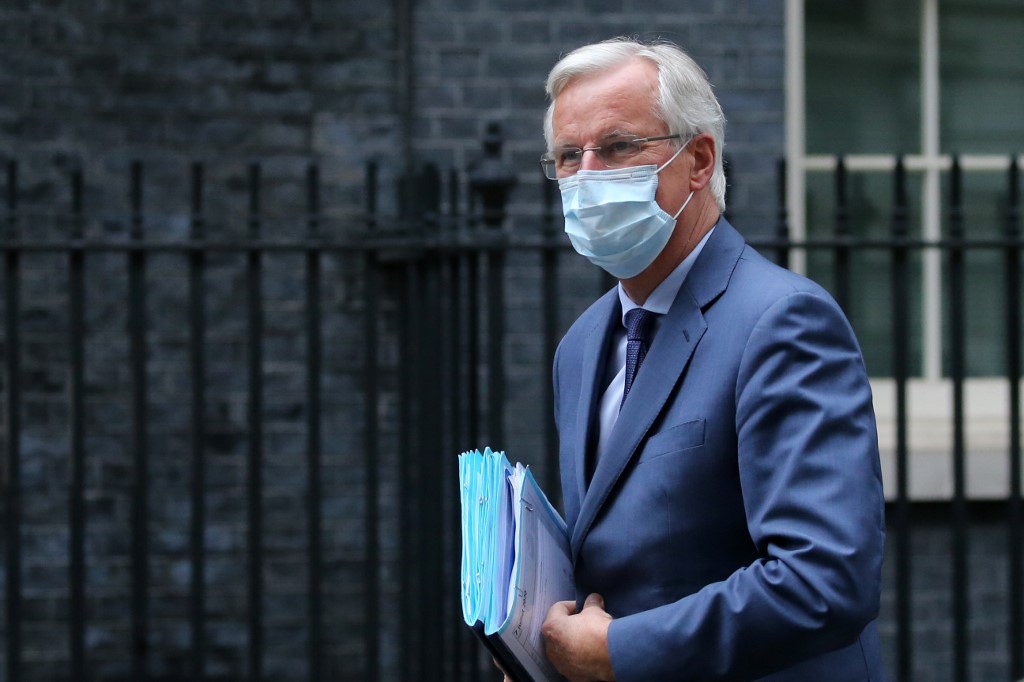EU Council president Charles Michel on Friday proposed setting up a five billion euro reserve fund for any unforeseen consequences of Brexit on bloc member states.
“Brexit is challenging for all of us and that is why we propose a Brexit reserve of five billion euros ($5.7 billion),” said Michel as he unveiled his latest proposal for a long-term EU budget that will be debated by bloc leaders next week.
Brexit with or without an agreement on future ties “will have consequences in Europe for the member states and that’s why I think it’s… necessary to ask the commission to prepare for a needs assessment by November 2021,” he said.
The EU and Britain are currently in negotiations to agree on a basis of trade relations after a post-Brexit transition phase ends on December 31.
“We all know that the ongoing negotiations are not easy,” said Michel, who chairs EU leaders summit meetings. “And we know that probably by the end of the summer or in September, October, we will have a clearer vision about where we are in these negotiations process.”
Ireland is expected to be the most affected by the end of Britain’s membership of the EU, with Belgium and northern France also seen as vulnerable to potential economic shocks.
‘Disruptions inevitable’
The EU said on Thursday said it is planning emergency measures across dozens of sectors after the Brexit transition period and warned of “inevitable disruptions” even if a deal is agreed with London.
“There will be far-reaching and automatic changes and consequences for citizens, consumers, businesses, public administrations, investors, students and researchers,” the commission warned, urging EU governments to prepare.
The European Commission, the EU’s executive arm, said it would recognise UK-based derivatives clearing houses – essential fixtures of the City of London’s financial pipework that underwrite more than a trillion dollars in transactions every day.
British and EU negotiators are making slow progress in working towards an agreement on future relations after the current Brexit transition period ends on December 31.
“This week’s discussions confirm that significant divergences remain between the EU & the UK. We will continue working with patience, respect & determination,” EU chief negotiator Michel Barnier tweeted after days of talks in London.
In a statement to the European Parliament and EU Council of member states, the commission said it had “identified only one area which may present financial stability risks, namely the central clearing counter-parties of derivatives”.
The EU said that “in the short term and in order to address the possible risks to financial stability, the Commission is considering the adoption of a time-limited equivalence decision for the United Kingdom in this area.”
The EU did not specify how long the measures would last but said it would allow European firms more time to handle the key service currently executed by the London Stock Exchange and other clearing houses.
London is the global capital of a complex but vital financial instrument called derivatives. Traders buy these to insure themselves against sudden interest or currency exchange rate swings.
The EU derivatives market was notionally valued in 2018 at 660 trillion euros ($750 trillion) – nearly 300 times the size of Britain’s entire economy.
In the EU’s proposal institutions where these transactions are finalised would have a licence to keep working with EU traders after December 31.
The commission statement also warned that even if Brussels reaches agreement on “the most ambitious future partnership”, disruption from January 1 is inevitable.
“The choices made by the United Kingdom’s government on the future relationship and on not extending the transition period mean that these inevitable disruptions will occur as of January 1 2021.”
The statement warns businesses that new customs checks will mean longer delivery times in supply chains and more red tape.
British travellers to the bloc will be subject to “thorough checks” at borders and will no longer be able to use EU passport holder lanes at airports, while pet passports issued to UK animals will no longer be valid.
AFP
























